#army of apes
Explore tagged Tumblr posts
Text
50 years ago today, at least a few people were watching the premiere episode of Saru no Gundan, or Army of Apes – a 1974 Tsuburaya Productions tokusatsu television series you might know better as Sandy Frank’s Time of the Apes, most likely through its appearance on Mystery Science Theater 3000’s episode 306 (or K17). The full series was never officially released overseas, but an English subtitled version has been making the rounds, and as an avid fan of other tokusatsu such as the Gamera films even outside their Sandy Frank/MST3K context, I decided to check out the series a little over a month ago.
I will never look at Time of the Apes the same way again.
(AKA: “Why doesn’t Johnny care, and why should you?”)
The first five or so episodes are rough, with a repetitive cycle of our protagonists getting captured by Gebar and the ape army, escaping, and getting captured again. It almost makes one long for the cut-down and far quicker Time of the Apes pacing, although then we’d have to forfeit the wonderfully overdesigned arts-and-crafts snake made by Izumi, Yurika, and Jiro to frighten the ape guards. These are the episodes that represent the majority of footage used by Sandy Frank in the film version, ending at Godo, Jiro/Johnny, and Pepe’s escape via train and skipping over six full episodes before the next included scene.
That next scene in question is the infiltration sequence from episode 12 that reunites the whole cast again, concluding with a brief argument about what to do next. Izumi/Katherine’s insistence that the group remain with the Prime Minister/Commander is one of the only moments in Time of the Apes that suggests the human protagonists have any option in this new world other than to flee. It’s quickly dismissed, and we cut to an unrelated escape sequence taken from nine episodes later.
In Army of Apes, after a few intervening events, Izumi actually wins that argument, with Godo agreeing to put aside his hatred for the apes and accept the protection of the Prime Minister and the peaceful Gorilla faction. It’s only once they believe the Minister has been killed in an attack on his motorcade that the reunited cast is forced to go on the run again.
What happens in those missing six episodes, and what continues throughout those subsequent nine, is what’s truly at the heart of Army of Apes, especially when compared to the more straightforward Time of the Apes. In the 6-12 stretch, the main cast remains separated into two groups – Godo, Jiro, and Pepe are displaced by having taken multiple trains away from the army headquarters, meanwhile Izumi and Yurika travel alongside the Prime Minister and Deputy Director Sabo in an attempt to find them. The humans thus have plenty of time to interact with various apes out in the world during their adventures, these guest characters often providing the central storyline for the episode. After the midpoint of episode 13, the episodic structure is slightly lost as the overarching plot picks up (the cast catching wind of the mysterious UCOM and investigating the history of how humans were replaced by apes), but the encounters continue, all serving the series’ central question: “Can humans live in a land of apes?”
The stories in these episodes vary from familiar tropes to deeply bold statements, from bright and heartwarming to monumentally tragic. Beginning with episode 6 we have an ape father and son, who barely interact with the main cast but whose differing views on the subject of humans cause them both to be killed for standing in the way of Gebar’s vengeful pursuit of Godo. Episode 7 features the street musician Reed, an ape guitarist who bonds with Yurika over a love of music – together, they create the series’ second recurring lyrical theme, There’s Love Somewhere, which continues to be associated with Yurika and her friendships with ape characters throughout the show’s run. Later on, a blind ape woman mistakes Godo for her son Uri, who in reality died on his way home escaping a life of crime. The group saves a woman named Ura and are welcomed into her village. A member of the army must choose whether or not to help the humans after they save his young child. Mari, a nurse, hunts down the humans in revenge, believing them to have killed her secret agent husband, only to learn they tried to save him.
(You might have also heard there’s robots and ninjas in this show. That’s also true.)
The big game-changer moment for the series, though, is likely episode 9, in which a Baboon named Lag abducts Yurika with the intent to raise her as a future bride. The series pulls very few punches with just how dangerous and dark a situation it’s invoking – in fact, this is where the previously accommodating, but dismissive Prime Minister fully steps up into a protective role over Izumi and Yurika. There is, in particular, a moment where Lag makes Yurika perform her song for him, which feels deeply upsetting – a corruption of something that holds personal significance for her.
But while Lag is terrifying, we also see the side of him that’s more misguided than overtly malicious, framed somewhat as a victim of his own view of the world. Circumstances ultimately conspire such that Lag dies to protect Yurika, and I don’t consider this a redemption – Lag never confronts his actions, and acknowledging that Yurika is worth saving still isn’t the same as acknowledging that her worth includes the ability to make her own choices. But none of the characters involved, not even Yurika, view his death as anything but a tragedy. He gets a solemn burial, just like the other character deaths up to that point, and when Yurika performs her song for Ura’s village in a later episode, she dedicates it in part to Lag, choosing to mention him only as someone who saved her life.
This is another core theme in Army of Apes – that death is never a good thing, that all loss of life is tragic. It’s far from a completely pacifistic message – the fights against the army result in plenty of on-screen deaths that get little-to-no gravitas, and it’s not always explicitly self-defense either – but there’s a running trend of our main characters solving problems by reaching out through compassion whenever possible. Even the main title’s lyrics (to the best I can gather from an incomplete translation) remark that the right way to fight as a human is to “take up the weapon of love” – a sentiment all but directly stated at the end of episode 13, when Godo hurls a rifle away into the ocean and declares “we have stronger weapons.”
It's also invoked clearly in the Prime Minister’s speech as he awaits his execution, undercut only slightly by the fact he’s buying time for a rescue attempt. He asks to be brought water as a last request, but instead of drinking it, he uses it to water the flowers in his room, explaining that while he is to die, the flowers will live on into tomorrow. This is after every other leader of the Gorilla faction, including Deputy Sabo, has been executed by Luzer and the Chimpanzee uprising – in a story arc that predates Star Wars Episode III: Revenge of the Sith by 30 years, but these days, would never escape direct comparison to Order 66.
Sandy Frank, to circle back one last time, condensed the entire Chimpanzee uprising story arc into a single scene (with suspiciously exposition-rich background dialogue). After that, though, Time of the Apes presents the final two episodes of the series in relative completion. One of the scenes featured is the last conversation with the Prime Minister, where the humans reaffirm their insistence that they can’t live in an ape country.
In reality, there’s been quite the debate up to this point – and it’s additionally interesting and significant for a work in this genre that the entire concept of repopulating the human species, including any mention of romantic partners, is almost wholly absent from the series, and is never a concern of any of the human characters. The debate is always spoken of in terms of human connection, a sense of community and peace, and whether that’s possible between humans and apes. Godo’s hatred of apes due to the trauma of his family’s death is certainly a strong point of contention, but while Izumi laments the unfamiliarity of the new world, there’s a distinct sense that if she didn’t have Godo’s and the childrens’ needs to think of, she would have stopped trying to escape a long time ago. She and Yurika have formed an especially close bond with the Prime Minister, and Jiro, who eagerly insists “I don’t always cry,” discovers in the end that he has a strong attachment to Pepe, and is distraught when the two friends part ways for the last time.
(In other words… as it turns out, Johnny does care.)
Within the mountain, in a moment that’s particularly effective after having watched the full series as opposed to the film, the humans learn from E U C COM that they are truly the only four humans remaining in the world – the time-travelers having missed meeting anyone besides Godo by a margin of two years or less. It’s only then, when faced with an ultimatum of either being sent to another planet or further into Earth’s future, that the protagonists start to resist the idea of leaving, perhaps discovering only when it’s too late that they’d rather stay with the apes, after all.
Of course, the final turn tables back on E U C COM and it miscalculates – and no, the full context of the series does not add any realism to the pseudoscience/technobabble of why extremely cold temperatures turned the cryogenic preservation pods into actual backwards-operating time machines. Izumi, Jiro, and Yurika end up back in the present human world, and thus the series avoids giving a final answer to its central question.
In Time of the Apes, it probably doesn’t matter, as what we’re given is a fairly standard stock happy ending for the “well, that was a scary experience!” story Sandy Frank chose to tell.
But in Army of Apes, the answer is already pretty clear:
By this point, Godo and Jiro have promised to return and visit Uri’s mother someday. Ura’s village has welcomed the entire group, with a genuine invitation to stay and live there. Even the Prime Minister, who has lost all his closest associates, resigned his position, and resolved as a point of honor to exile himself from ape society (with his last act being to ensure the humans’ safety in his absence), seems to be setting himself up to live out the rest of his days in the company of the humans he’s grown so fond of, if only they’d stayed. We’ve seen humans and apes treat each other as if they’re one in the same, with often only Godo’s pain of the past and the others’ search for answers driving them to leave these opportunities behind. Gebar, now acting alone and outside the bounds of any military authority, is the last active ape threat to the humans, and once he learns the truth about his family and finally sets aside his grudge against Godo, there really is nothing to say that even if the time travelers were never able to return home, the series couldn’t have ended just as happily, or even more so.
Take up the weapon of love, fight like a human Army of apes, what are you doing?
#saru no gundan#army of apes#time of the apes#tokusatsu#mst3k#mystery science theater 3000#army of the apes
4 notes
·
View notes
Text




Steyr Puch Haflinger 700 AP Prototype, 1959. A lightweight off-road vehicle with astonishing off-road capabilities, thanks to its front and rear differential locks and low weight. This is the 48th one produced and left the factory on the October 22nd, 1959. Originally intended for the Austrian army, it was kept at the factory in order to create a prototype for the US market, identifiable by the size of its headlights and its odometer calibrated in miles. As it was never shipped to the USA, it was finally sold to Fiat (the brand’s distributor at the time) on the 24th October 1960 and then registered in Turin, becoming the first and only example delivered to Italy in 1960. The Haflinger was discovered in the small mountain village of Curiglia in Italy, hidden in a tool shed only accessible via a stone path. The restoration carried out has preserved the originality of this machine as much as possible. Since October 1959 it has travelled only 11,990 miles and will be offered at auction at Rétromobile 2025.
auction listing
#Steyr Puch#Steyr Puch Haflinger 700 AP#prototype#ATV#all terrain vehicle#4x4#1959#army vehicle#cars for sale#auction#Rétromobile 2025#forward control#cab over
214 notes
·
View notes
Text
it is a crime to write draco malfoy as anything other than a little shit and im on my way to arrest your fool ass
#i dont care how old he is godammit#he can be mature and composed and tactful on the outside as long as theres an army of monkeys going ape on the cymbals inside his head#youre telling me hes looking at harry potter and NOT twitching with the urge to do something completely unhinged#dont be ridiculous#if ur not going to be serious about him i want my money back#eleasnore
158 notes
·
View notes
Text
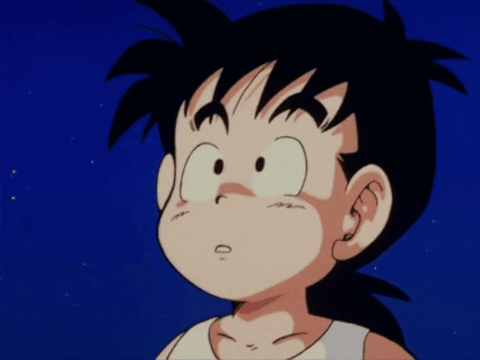
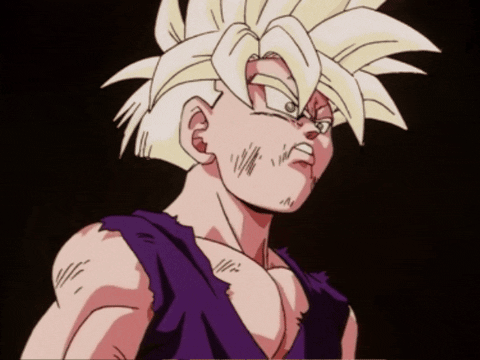
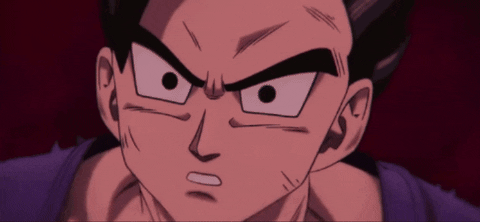
Gohan | Dragon Ball Franchise
#dragon ball z#dragon ball#dragon ball super#gohan#sci fi#goku#akira toriyama#martial arts#piccolo#vegeta#dragon ball super super hero#manga#anime#red ribbon army#cell max#beast gohan#super saiyan 2#cell saga#perfect cell#orange piccolo#great ape#saiyan saga
493 notes
·
View notes
Text
#polls#2014 in film#transformers: age of extinction#the hobbit: the battle of the five armies#guardians of the galaxy#maleficent#the hunger games: mockingjay part 1#x men: days of future past#captain america: the winter soldier#dawn of the planet of the apes#the amazing spider man 2#interstellar
726 notes
·
View notes
Text

Promotional ad for the television series Army of the Apes (Saru no Gundan) (1974).
Not at all inspired by the Planet of the Apes films. Not at all.
62 notes
·
View notes
Text
Armies of the Dead/heaven in myths and epic fantasy - and the magic horns behind them!
One of the most famous armies of dead soldiers? The Men of Dunharrow, the army of the dead from Lord of the Rings who broke their oaths and renewed them finally under Aragorn.
Let's do this!
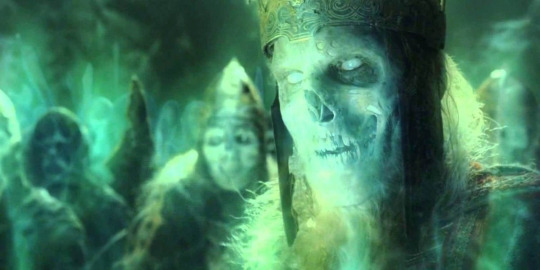
If you're a younger fantasy reader, or more modern, perhaps your introduction to this idea is in Robert Jordan's Wheel of Time with his magical horn that summons an army and legendary heroes to the field.
Some fans have said this is inspired by the Norse horn Gjallarhorn.
This is the horn trusted to Heimdallr to be blown to announce the beginning of Ragnarok and summon the Norse gods to the "thing" (thing is used in this case legitimately to mean - meeting, assembly, folkmoot) - in a moment like NORSE AVENGERS, ASSEMBLE!
This includes the Einherjar, the spirits of Norse warriors of honored dead who fell in battle and reside in Valhalla. But was there another possible influence?
Well, we know RJ was a Tolkien fan, and honestly who wouldn't be back in the days of early fantasy?
So, what of Tolkien's ghostly army of dead warriors? Well, if you haven't read the books, you might not know that Aragorn too summons his army of the dead with a magical horn (cut from the films). That's right.
You see, Elrohir (one of the sons of Elrond, also cut from the films) entrusts Aragorn with a silver horn to summon the dead with at the Stone of Erech to deal with them. Tolkien was a Norse buff and loved the old epics as well as poems.
So he was likely familiar with the stories just like with Gjallarhorn as well. But also, quite possibly the Song of Roland (a French epic poem) in where Roland and his forces are ambushed at Roncesvalles and are going to lose. In final desperation, Roland blows the horn, and the emperor hears the call. But the aid will not arrive in time (unlike the films and more modern stories where the heroes do arrive to save the day - this is cuz we like the just in the nick of time trope) so Roland dies blowing it one last time to hard in vengeance his temples burst (and he ascends to heaven), but...Charlemagne's army arrives in the aftermath and scatters the enemy. But, are there other armies of the dead? In fact, yes.
The Night Marchers of Hawaii who come with a warm wind, & the smell of sulfur, and the call of a conch shell to herald them. If you come upon this procession with torches in the night, and you are an enemy...time to RUN! Because if you watch them your eyes might be incinerated.
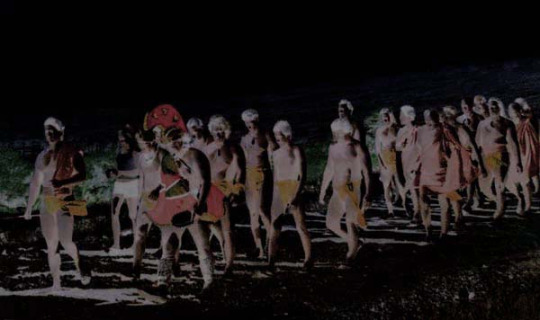
Then there is the Wild Hunt - a shared myth motif present through eastern, northern, and western European cultures. A ghostly army of the souls of dead men (and creatures) usually united under a leader (though this figure changes), Herne, Odin/Woden, Gwyn ap Nudd, Sigurd or Siegfried the Dragon Slayer, Theodoric the Great, onward. Now, they're not summoned by a horn, but in some tales their coming is announced by one.
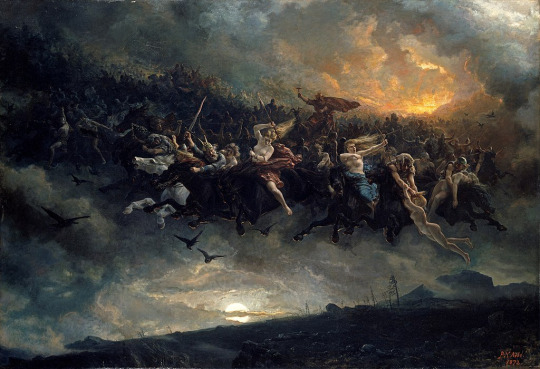
Now, an Indian cognate of the Wild Hunt and warriors in the service of heavens The Maruts.
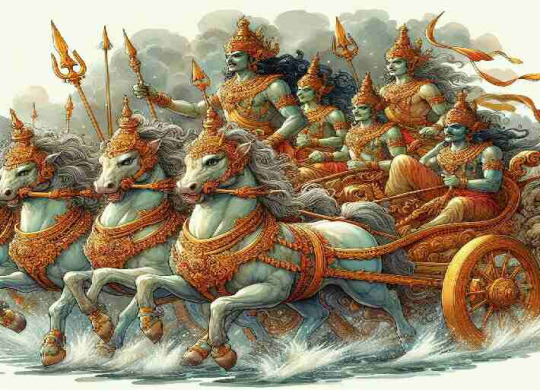
The number of them vary from 20+ to over 180, to even more (yay conflicting mythological sources and arguments in ancient texts and interpretations).
But who are they? Companions and servants to Lord Indra, Slayer of the First Born of Dragons, and lord of the heavens and storms! So, fittingly, these warriors are very...storm themed. Violent, aggressive, expert combatants armed with lightning weaponary, and golden chariots to fly through the clouds on. Their war crys and battle sounds are like thunder. Their blows would split clouds (sounding thunder) and would hunt the enemies of Lord Indra and slaughter demons/monsters.
Interestingly they are often associated as the sons (children) of Rudra (the Rig Vedic storm and wind god). However, there is another group that often gets that association (obviously so), the Rudras.
The Rudras are similar in (some) regards to the Maruts but not all. They aid Vishnu in his battles against demons and are clad in lion-skins, and wear serpents around their necks. A crescent moon adorns their foreheads, and they wield golden tridents and carry a skull in one hand they wear necklaces of lightning illuminated clouds (how's that for bling bling?), and are monstrously feral in battle. Lord Shiva can call them with a blow of a conch shell/horn.
Their overlap, association with the Maruts is because of some etymology and shared functions as they too are a divine/spiritual/demigod group of heavenly warriors to aid the good and destroy evil - demons/adversaries, and the root word in their name means the roarers, thunderers, or the shouters - and this is also mentioned of the Maruts.
Are these all there are for legendary armies of the dead, of gods/heaven to be summoned to the field or aid? No. But, it's rainy, I'm a little messed up (mental health and meds), and tired.
So I'm going to bow out and read and study for Tremaine 3 and leave this minor comparative thread here for folks into this stuff.
#armies of the dead#The Men of Dunharrow#myths and legends#folklore#lord of the rings#magic horns#wheel of time#robert jordan#Gjallarhorn#Heimdallr#Norse gods#einherjar#valhalla#tolkien#aragorn#elrohir#night marchers#night marchers of hawaii#wild hunt#odin#woden#gwyn ap nudd#siegfried the dragonslayer#theodoric the great#Maruts#Lord Indra#Rudra#Rudras#Vishnu#Shiva
17 notes
·
View notes
Text
Once again I have seen somebody writing Gwydion as a good guy and I NEED PEOPLE TO STOP. Pls. Begging. Literally begging at this point. I'm on my KNEES. He is The Worst. This is why I think I fuckin loathe him so much because people don't RESEARCH HIM. I'M DJDKDKDKDDKDK They just see the words 'magician,' 'trickster god,' and 'the light to the family of Llŷr's dark' and think huh he's a cool guy. He is HEINOUS.
#look its 6:30 am and I have not slept#and I have no doubt the author has good intentions but. No#lloyd alexander i understood. yhat was Necessary. but u think he'd be entrusted with thr pair dadeni? THEE CAULDRON OF REBIRTH?!#are u CRAZY?????#i wouldn't trust him with my pet dog let along a cauldron THAT CAN LITERALLY BRING DEAD ARMIES BACK TO LIFE#can u hear that? its the sound of me weeping profusely over this.#I know other interpretations are all fine and dandy and that but it just seems ooc?????#welsh mythology#the mabinogion#welsh myth#mabinogion#the mabinogi#y mabinogion#y mabinogi#welsh folklore#arthuriana#gwydion ap dôn#also let us not forget he literally started a war for some pigs. (and also so his brother could be a cunt.)#man's not nice. i don't fhink u should sand off his band qualities to make him a fuckin hero.#and if u wanted a hero who guards thr cauldron then BRÂN IA RIGHT THERE#i realise I sound awfully gate-keepy and i don't mean to be. but like sometimes I just get tired of stuff like this#gwydion has perhaps one redeeming quality and that depends on ur mileage.#i just... yeah#i love reinterpretations but sometimes I'm like did u do research? unless they're going for a start of darkness thing which maybe#anyway my rant is done. i will actually sleep for oh two hours now.
10 notes
·
View notes
Text


THE AURAL EQUIVALENT OF FRENETIC BRAIN REARRANGEMENT IN 1997.
PIC(S) INFO: Part 2 of 2 -- Spotlight on the BLACK ARMY JACKET/NOOTHGRUSH split vinyl 7 inch inlay illustrations, released jointly under the Reservoir and Monkeybite labels in 1997. From the private collection of Yasuhiro Yoshitome (@yasuhiro_1623).
Source: www.picuki.com/media/3150367847729726683.
#NOOTHGRUSH#BLACK ARMY JACKET#NOOTHGRUSH BLACK ARMY JACKET Split#NOOTHGRUSH/BLACK ARMY JACKET Split Release#Sludge DOOM Metal#Sludge/DOOM Metal#DOOM!#Sludge Metal#Sludge#Grindcore#Sludge/DOOM#Sludge DOOM#7 inch Vinyl#Split Release#The Planet of the Apes 1968#Planet of the Apes 1968#Sci-fi Fri#90s grind#90s hardcore#Records#Split Vinyl Release#Reservoir Records#DOOM#DOOM Metal#7 inch#Hardcore punk#Powerviolence#Vinyl#1997#7 inches
13 notes
·
View notes
Text
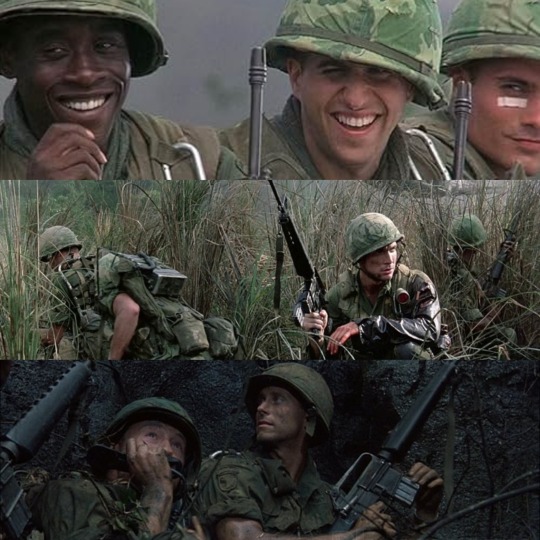
Hamburger Hill (1987, John Irvin)
25/03/2024
Hamburger Hill is a 1987 film directed by John Irvin, inspired by the Battle of Hamburger Hill, which occurred during the Vietnam War.
Vietnam, 1969, a group of young paratroopers of the 101st Airborne Division, under the command of Sergeant Frantz, is sent to the A Shau valley to try to wrest Hill 937 from the North Vietnamese, which, following the battle, will be nicknamed "Hamburger Hill" (meat grinder hill), due to the significant losses suffered by American soldiers.
Filmed between October and December 1986, Hamburger Hill is part of the Vietnam-movie genre of the period, coming out a year after Oliver Stone's Platoon and at the same time as Stanley Kubrick's Full Metal Jacket.
#Hamburger Hill#film#1987#John Irvin#Battle of the Hamburger Hill#vietnam war#vietnam#1969#101st Airborne Division#Valle di A Shau#People's Army of Vietnam#platoon#full metal jacket#percy sledge#otis redding#waylon jennings#the spencer davis group#the temptations#the animals#the supremes#bob dylan#Country Joe and the Fish#war film#united states army#3rd Battalion 187th Infantry Regiment#187th Infantry Regiment#Dong Ap Bia#laos#trench warfare#Bunker
12 notes
·
View notes
Text

still working out verses but brief outline of noble's tlos verse:
pyrrhia is a nearby island in the dragon realms
at the start of the war, the nightwings sided with malefor after being promised new land and the ability to bring the tribe back to former power
noble grew up with the nightwings, working his way up in malefor's army to be a general under morrowseer and cynder
malefor's corruption resulted in his element to be both fire and shadow
noble is wounded during the war by cyril's ice breath, resulting in his shoulder plate
games 1 and 2 happen, majority of the nightwings die during the war - including noble's family and morrowseer
seeing to reason, noble surrenders after malefor's defeat and joins the guardians as the guardian of night
#☽ | 𝐍𝐈𝐆𝐇𝐓 𝐇𝐎𝐋𝐃𝐒 𝐍𝐎 𝐒𝐎𝐋𝐀𝐂𝐄 𝐓𝐎 𝐓𝐇𝐄 𝐋𝐎𝐒𝐓 | noble dossier.#noble tlos verse.#basically game canon but swap the ape army with an army of nightwings
2 notes
·
View notes
Text
Army Public School attack, Peshawar. (Dec 16, 2014)
144 dreams ,144 families, 144 children
All gone within an hour.
"Smallest coffins are the heaviest."
Hum nahi bhoolay 💔
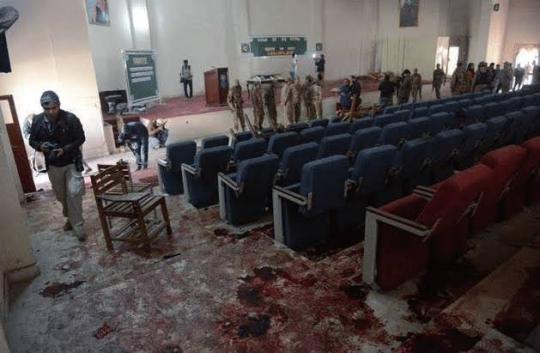

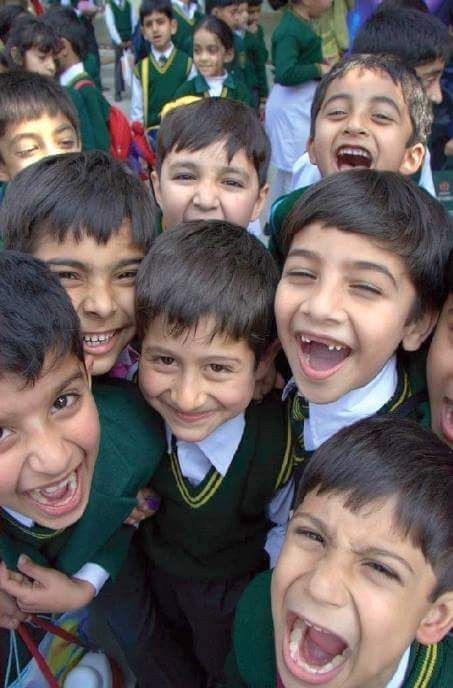

#aps attack#Army Public School Peshawar#black day#bara dushman bana phirta hai Jo bachon se larta hai#pakistan#peshawar#desi tumblr#desi tag#desi
11 notes
·
View notes
Text
What are you all so worried about? It was only one block that was controlled by a foreign gang extorting and killing people! You shouldn't be caring about the videos showing that exact thing happen, you should care about the graphs that say violent crime is down, except for when we demand you give us your guns. Who cares about individuals anyways? Those people being extorted weren't of a larger number than the ones in those graphs, so they don't matter, and you should believe us because we're the only arbiters of truth trustworthy news sources.
#aurora#aurora colorado#venezuelan gangs#gang crime#ap#ap news#associated press#trump's solution of sending in the army would just replace one problem with another but at least he's admitting there is a problem#although in fairness it benefits him electorally to admit it#i highly doubt he would if it was against his interests to point out that gang crime is a problem#as it is with the democrats
2 notes
·
View notes
Text
Battle of Cedar Creek, Virginia, 19 October 1864 (Alfred Waud)

Alfred Waud's sketch of the Battle of Cedar Creek, Virginia, 19 October 1864 (U.S. Library of Congress, public domain).
#1860s art#american history#american civil war#civil war#ap us history#virginia#virginiahistory#us army#infantry#artillery#union army#1864#art
11 notes
·
View notes
Text
My Top Ten and Bottom Ten New Watches of the Month:


#godzilla minus one#swiss army man#the daniels#minari#steven yeun#a quiet place#a quiet place 2#rise of the planet of the apes#letterboxd#joker
3 notes
·
View notes
Text



me and the fellas got a little bamboozled last night thanks to the closet collection
#whoever put this fucking book together is an absolute troll#for whatever reason ; when they were taking pictures of both the army panther and the amoeba someone got this bright idea of like#putting a picture of the back of the amoeba NEXT to the AP ; which lead to a lot of confusion#and now I'm gonna be shilling out money for Pinky Promise on payday :]#why are you like this headwax ; I'm going to put you into a chokehold through the SCREEN
2 notes
·
View notes